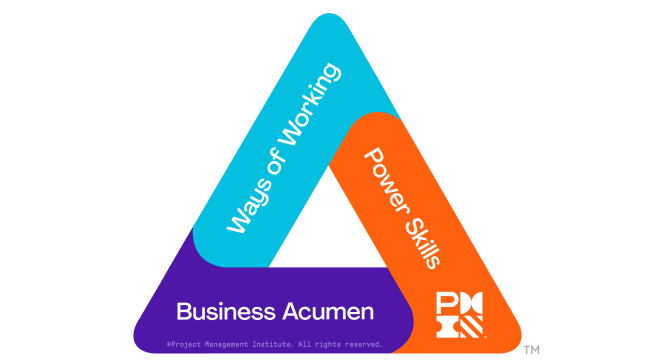Applying the 12 Principles of Project Management from PMI for Implementation Success
(FUSE-SPS- PDU 309)
This foundational course provides deep exploration of PMI’s 12 Project Management Principles and their practical application for successful project implementation. Participants will learn to integrate these core principles into their project management approach, creating consistent frameworks that drive project success while adapting to diverse organizational contexts and project requirements.

Talent Triangle Breakdown
Business Acumen: 3
Ways of Working: 2
Power Skills: 1
Individal Course Price
USD $59
Bundled Price for 60 PDUs
USD $399
PDUs
6
Course Duration
6 hours
Associate Certifications
PMP, PMI-ACP, CAPM, PMI-CP
Course Description
In today’s complex and adaptive project environments, success is not defined solely by scope, schedule, or budget—but by a leader’s ability to apply principled, value-driven practices. This foundational six-hour course offers an in-depth exploration of PMI’s 12 Project Management Principles as outlined in the PMBOK® Guide – Seventh Edition, focusing on their practical application for real-world project implementation.
Participants will learn how to internalize and apply these principles to foster trust, enable collaboration, manage complexity, and deliver sustained value. Using case studies, frameworks, and self-assessment tools, this course bridges theory and action—empowering professionals to tailor their project approach while staying grounded in universal, ethics-based leadership and delivery practices.
Learning Objectives
By the end of this course, particpants will be able to:
Understand PMI’s 12 Project Management Principles
Describe the structure and intent behind PMI’s principles-based approach to project management and their relevance in diverse delivery environments.
Promote Stewardship and Team Empowerment
Apply principles related to stewardship, team building, and stakeholder collaboration to foster accountability, engagement, and shared success.
Deliver Value and Ensure Qualit
Integrate value delivery, quality focus, and complexity management principles to align outcomes with business objectives and stakeholder needs.
Adopt Systems Thinking and Contextual Tailoring
Demonstrate systems thinking and tailoring principles to select appropriate delivery approaches based on project context and interdependencies.
Manage Risk, Change, and Uncertainty Effectively
Apply principles of risk response, resilience, and continuous learning to manage change, seize opportunities, and strengthen implementation outcomes.
What You Learn
Module 1: Stewardship and Team-Centric Principles
This module explores the principles of stewardship, team collaboration, and stakeholder engagement. Participants will learn how principled leadership, ethical accountability, and servant-leader behaviors contribute to a healthy team environment and successful delivery. Techniques for empowering teams and navigating stakeholder dynamics are also introduced.
Module 2: Value Creation and Quality Focus Principles
Here, learners focus on the principles that support value realization, quality assurance, and navigating project complexity. The module highlights practices for prioritizing stakeholder value, aligning objectives with strategic outcomes, and embedding quality into every stage of the project lifecycle.
Module 3: Systems Thinking and Leadership Principles
This module introduces systems thinking, leadership, and tailoring principles. Participants will examine how to view projects as interconnected systems, apply adaptive leadership styles, and customize project delivery approaches to suit varying organizational and environmental contexts.
Module 4: Risk and Opportunity Management Principles
Focusing on risk awareness, adaptability, and resiliency, this module empowers learners to move beyond reactive risk management toward proactive opportunity identification. The emphasis is on building resilient teams, fostering a learning mindset, and maintaining agility in the face of change and uncertainty.
Module 5: Integration and Continuous Learning Principles
The final module explores principles of change navigation, knowledge transfer, and continuous improvement. Learners will understand how to embed learning loops, retrospective analysis, and organizational knowledge-sharing mechanisms to sustain long-term project success and growth across project portfolios.
